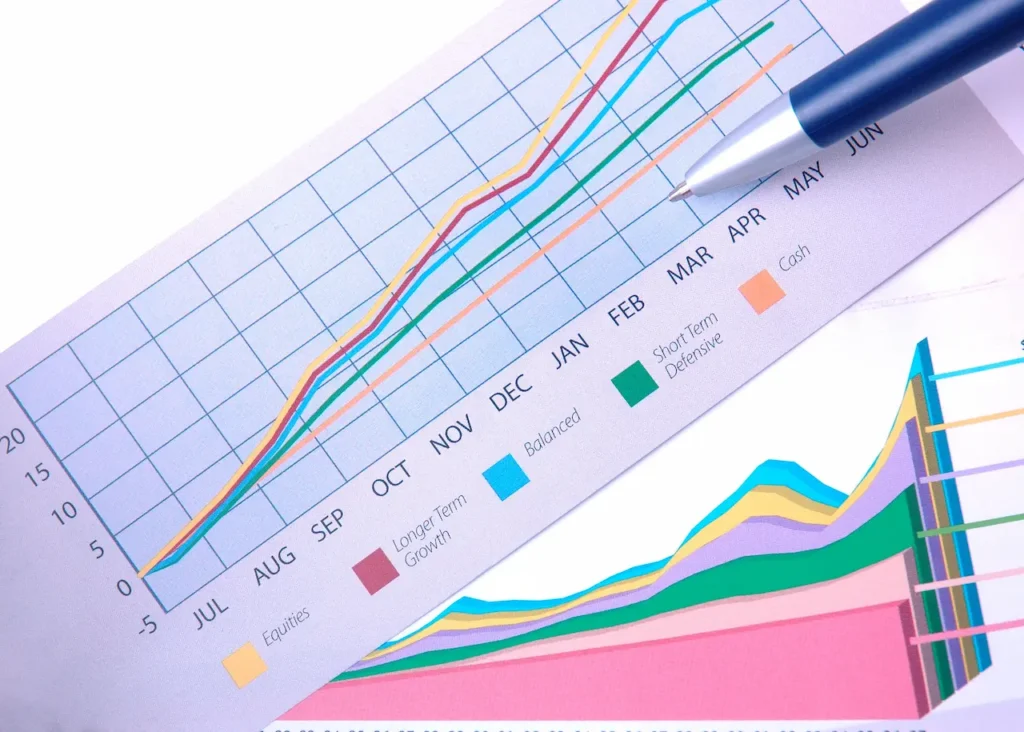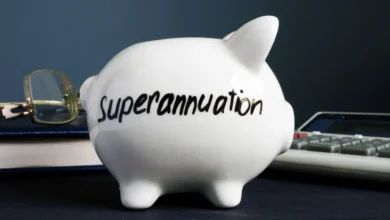When Can You Access Your Super Balance?
When Can You Access Your Super Balance?: Unlocking Your Super
Understanding when and how you can access your superannuation is a crucial part of financial planning, especially as you approach retirement. While super is designed primarily for retirement savings, there are several conditions under which you can access your balance earlier or under specific circumstances. Let’s break it down in detail.
The Sole Purpose Test: Why Super Exists
Superannuation was created with the main goal of supporting Australians in their retirement. The sole purpose test is a key principle in super legislation, ensuring that your super is used only for retirement, with a few exceptions that qualify as ancillary benefits. So, when can you access your super?

Accessing Super: The Preservation Age
To access your super balance, the first step is to meet the preservation age, which depends on when you were born. If you’re 59 or older, you’ve reached your preservation age, which is the first milestone for accessing your super.
The preservation age has been increasing over time. For example, it used to be 55, but now it starts at 59, and eventually, it will rise to 60. This means that once you hit the preservation age, your super is no longer locked away—assuming you meet other conditions.
Retiring at Preservation Age
Once you reach your preservation age, you are eligible to access your super if you decide to retire from the workforce. This is a common condition of release, and once retired, you can access your super in full. You have the option to take your balance as a lump sum or start receiving pension payments. However, tax implications will differ depending on your age—specifically, whether you’re over 60 or not.
Reaching 65: Full Access Regardless of Employment Status
Did you know that once you turn 65, you can access your entire super balance, tax-free, regardless of whether you’re still working or not? This is a major milestone for many people and provides full flexibility in managing your retirement savings. You could continue working, run a business, or just relax—your super is yours to access freely once you reach this age.
Ceasing Employment After Age 60: A Little-Known Rule
Here’s a surprising rule that many people don’t know: If you’re over 60 and decide to cease any employment arrangement—whether it’s a part-time job or a full-time career—you gain full access to your super. This includes situations where you might have multiple jobs; as long as you cease one, all your super becomes available.
However, this rule only applies if you are an employee, not a freelancer or independent contractor. So, if you run your own business and work as an employee of that business, you could access your super by ceasing that employment. But if you’re freelancing, this rule doesn’t apply.
Non-Super Wealth and Retirement Planning
What happens if you don’t have super, like some farmers or people with rental properties as their main source of wealth? Superannuation rules won’t impact you in these cases, as your wealth is outside the super system. In these situations, you would need to rely on other investment strategies, such as rental income or selling assets, to generate income during retirement.
Tax on Super Benefits for Non-Dependents
A question we often get relates to the tax implications of your superannuation when you pass away. If your super balance goes to your adult children (who are not dependents), they may face tax on the taxable component of your super. The tax rate is 15% plus a 2% Medicare levy, making it a total of 17%. However, if your super is directed to your spouse, there are no taxes.
Some people wonder if moving their super to their estate would avoid this tax. Unfortunately, it doesn’t, but there is a small benefit in that the 2% Medicare levy wouldn’t apply if the super is transferred to the estate.
In the earlier part of this blog, we discussed when you might be eligible to access your super balance, especially about your employment status. But things get a bit trickier when you consider factors like age, whether you’re working part-time, or if you’re planning to leave Australia. Let’s dive into some scenarios to give you more clarity on your options.
Working After 60: What About Those Remaining Jobs?
You might be thinking, if you’ve got a couple of jobs and you decide to quit one of them, do you still meet the requirements to access your super? The 10-hour rule comes into play here, which generally applies to whether you’re still considered “gainfully employed.”
Once you hit your preservation age (the age at which you can access your super), and you cease employment in one of your roles, you may become eligible to access your super balance. The key here is whether you’re working more than 10 hours per week across all jobs. If you’re still working over this threshold, you won’t meet the “retirement” condition to access your super unless you’re over 60. So, if you’re post-60, you can cease one job and access your super, regardless of how many hours you’re working in your other roles.
However, if you’re between your preservation age and 60, you must fully retire from all gainful employment (i.e., no more than 10 hours a week total) before you can access your super balance.

What If You’re Leaving Australia?
For expats planning to return to their home country, like Sue, who’s been living in Geelong for 13 years and is planning to move back to Canada, it’s important to know that there could be tax penalties for withdrawing your super early. You’ll likely face a higher tax rate (anywhere from 30-40%) unless there’s a specific tax treaty between Australia and your home country. At present, there isn’t a tax treaty between Australia and Canada regarding super withdrawals, so it’s worth exploring this further before making a decision.
Sue, for instance, might decide to leave her super in Australia until she can access it upon reaching the retirement age (60 years), avoiding the hefty tax penalty now and possibly drawing it as a lump sum or pension later when she’s ready to retire.
Should You Pay Off Your Mortgage With Super?
One of the common questions we get is whether it’s a good idea to use your super to pay off a mortgage when you turn 65. In theory, paying off your mortgage can give you peace of mind, particularly in retirement, by eliminating the need for ongoing mortgage repayments. However, withdrawing money from your super to pay off your mortgage is a personal choice, and the current environment of rising interest rates means you might save more money in the long term by using your super for this purpose.
But be cautious: if you still have some time before full retirement, consider how withdrawing from your super now will affect your long-term retirement savings. It’s often recommended to enter retirement with minimal or no debt, and using your super to reduce mortgage repayments could align with that goal.
Contributions After Retirement: Accumulation vs. Pension Accounts
Another question often comes up: why is there a need to set up an accumulation account if you want to contribute more money to your super after you’ve already set up a pension account? The reason lies in the different tax environments of each account type. Contributions to a pension account aren’t taxed, but contributions to an accumulation account are taxed at 15%.
The good news is that once the money is transferred from the accumulation account to the pension account, it will join your existing super and benefit from the tax-free environment of your pension account. It may sound complicated, but it’s generally seamless with modern technology and administration in place to handle it efficiently.
Military Superannuation: Is It Taxed?
For military pensioners like Peter, there’s often confusion about the tax implications of their superannuation. The taxation of military pensions depends on the type of scheme—whether it’s taxed or untaxed. Military super schemes are generally untaxed, meaning that although they are taxed when paid out, there’s often a 10% offset applied to reduce the overall tax burden.
Untaxed schemes result in greater tax liabilities, but they’ve also been growing over time without being taxed, so the government needs to recoup some of that benefit when it’s paid out. Even though it seems like a hefty tax, the benefit is still substantial, and the offset makes it more manageable.
Using Your Super to Buy a Home: Is It a Smart Move?
This is a question that’s been raised by many individuals in their 30s, especially when it comes to purchasing a home. The idea of taking out a lump sum of super to help buy a home may seem tempting, but it comes with significant long-term risks. While it might provide the initial deposit to buy a property, accessing your super early means you’re using retirement savings that would otherwise grow over time.
If you do withdraw funds, the downside is that you may be left without much saved for your retirement, potentially forcing you to rely on the age pension when you retire. Furthermore, you’re likely to pay taxes on early withdrawals, and the market conditions could also affect your future returns if you miss out on investment growth.
Governments have been hesitant to allow people to access their super for home purchases because of these long-term consequences. For most people, it’s better to leave their super untouched and explore other ways to get into the housing market.
Conclusion
Understanding when and how to access your super is essential for managing your retirement plans. Whether it’s through retirement, turning 65, or ceasing employment after age 60, there are several conditions under which you can unlock your super. It’s crucial to know these rules to make informed decisions about your financial future. Keep in mind that there are many nuances, especially when considering tax implications or if you don’t have super at all. Always consult with a superannuation expert to make sure you’re on track for a secure retirement.
The rules surrounding superannuation and when you can access it can seem a bit complicated, but knowing the key factors—such as your age, employment status, and plans for the future—can help you make informed decisions. Always consider the long-term implications of accessing your super early, especially when it comes to your retirement plans. If you’re unsure, it’s always a good idea to seek professional advice tailored to your specific situation.
Stay tuned for more updates on superannuation and the finer points of managing your retirement savings. And as always, reach out to experts for personalized guidance!





